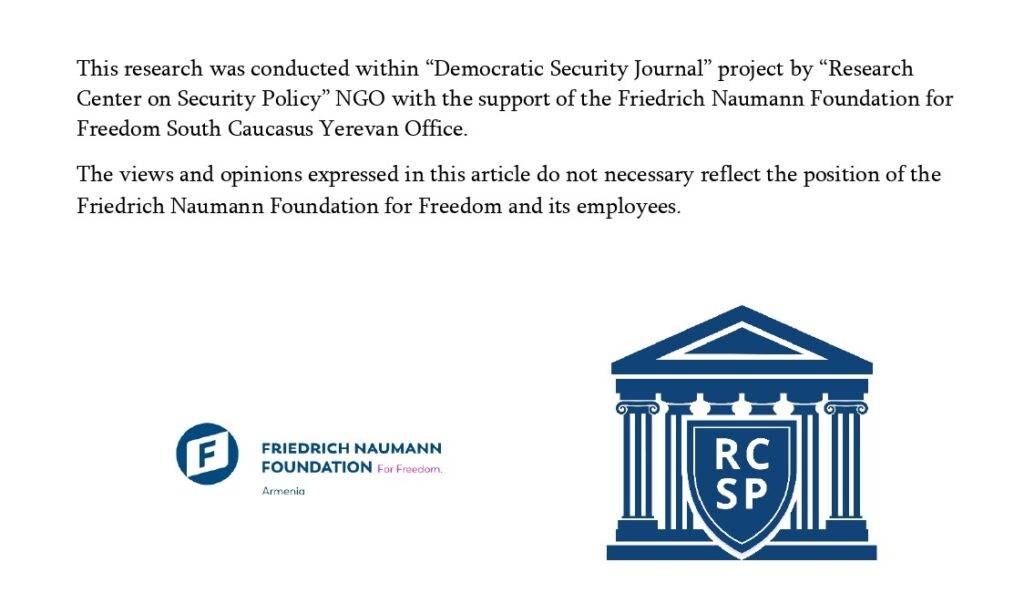General Principles of Public Financing
In the world, public (hereinafter state) financing of political parties is the support from public authorities – the state and/or local self-government bodies – aimed at establishing and developing political parties, as well as reducing dependence on private interests and financing. Public financing is intended to balance and ensure equal competitive conditions for political parties. On the other hand, there is also a risk of making parties dependent on and controlling them through state finances.
In only three European countries (Italy, Switzerland, Belarus), political parties do not receive any form of financing from the state under any conditions. Armenia also belongs to the numerous countries where the state provides financial support to political parties. We will discuss why, under what conditions, and with what effectiveness below.
We have already discussed the party system and private financing in Armenia.[i] Normatively, in Armenia, the state finances parties with certain public support and without other significant income sources, with the aim of promoting viability and independence. However, the current regulations do not particularly contribute to this goal defined in the “On Parties” law.
General Data on State Financing of Parties in Armenia
In Armenia, parties can receive state financing if they received at least 2% of votes in the last National Assembly elections. Meanwhile, a party alliance must overcome the mandate acquisition threshold (currently 7%) to receive state financing. The problematic nature of the latter and other provisions have been discussed in more detail.[ii] Although state support has already been provided to parties in Armenia for some time, state financing has been operating under current conditions and structure since the 2021 elections.
The five parties meeting these conditions are “Civil Contract”, “Prosperous Armenia”, “Republic”, and the Armenian Revolutionary Federation (Dashnaktsutyun) as well as “Reborn Armenia” included in the “Armenia” alliance. The parties of the “I Have Honor” alliance, despite being in the National Assembly, do not receive state financing because they did not overcome the threshold, despite being the third force with the most votes.
The amount of state financing for parties is determined as follows: up to 5% of votes, the party receives 1000 drams per vote; from 5% to 20%, 500 drams per vote; from 20% onwards, 250 drams per vote. Based on this formula, following the 2021 National Assembly elections, the state provides approximately 520 million Armenian drams annually to these five parties.[iii]
| Political Party | Annual State Financing (AMD) |
| Civil Contract | 268 million |
| Republic | 38 million |
| Prosperous Armenia | 50 million |
| Armenia Alliance | 163 million |
The political party whose asset value exceeds five times the prescribed total amount – in this case, approximately 2.6 billion drams – does not receive state funding. Apparently, there is no party in Armenia that has transparently declared assets of this scale. The law also stipulates that if the party’s annual income from rental, bank deposit, or income from mass media or publishing established by the party exceeds state funding, then for that year, the party does not receive money from the state. Such cases are also not encountered in practice.
Political Party State Funding Structure in Armenia
In Armenia, state funding has two components: general and targeted.
General funding comprises 60% of state funding and is provided directly to parties without any preconditions. Policy-makers have decided to provide the remaining 40% to parties upon fulfilling the following 3 annual conditions:
- 20% targeted state funding is provided if there is equal gender representation in the party’s governing body; if the minority gender representatives exceed 40% of the governing body, 10% targeted state funding is provided; if the minority gender representatives constitute 20-40%:
- 10% targeted state funding is provided if the party has territorial subdivisions in at least half of the marzes:
- 10% targeted state funding is provided if the party conducts and publishes research on party ideology, program goals, and public policy issues.
The legislature has determined that the above-mentioned three directions are priorities for development in the party system, and targeted funding by parties should be spent in these directions. Parties submit information about these directions in their annual reports to the Corruption Prevention Commission (CPC), based on whose conclusion the targeted funding is provided. It is noteworthy that in professional discussions, it is mentioned that Armenia is the only country that has these components as a condition for state funding. Nevertheless, on the initiative of the CPC, from 2021 until now, legislative exceptions have been established, resulting in parties receiving targeted funding without checking compliance with the above conditions. The CPC justifies this by the complexity of the verification process. The latter claim is not quite justified – evaluating the credibility of several data points from 5 parties over a year is within the administrative capabilities of the body.
The Importance of Reviewing State Funding
State funding constitutes a significant portion of parties’ overall finances. However, unlike most other parties, those receiving state funding are also able to secure private funding. Current regulations create a chain of deepening inequality between parties. Parties that have more financial capabilities for various reasons (Civil Contract Party, ARF, Republican Party, Prosperous Armenia Party, etc.) use these resources to gather enough votes to receive state funding. State funding gives these parties a significant financial advantage in electoral competition, resulting in these parties again qualifying for state funding. Thus, current regulations make wealthy parties wealthier and more competitive, deepening inequality between parties.
The study of international experience shows that in several countries, parties lose the opportunity to receive state funding if their campaign expenses exceed a certain threshold. In other words, if a party can spend significant money on its campaign, then that party does not need funding from the state. In the USA, besides the aforementioned mechanism, there is also the possibility for individuals to direct 1% of their taxes at year-end to fund political and public organizations.
In Armenia, the current system can be reformed based on the above-mentioned principles. Targeted funding currently applies only to parties receiving general funding, while the development of the three designated directions is important for the party system as a whole. Accordingly, targeted funding could also be distributed among other parties that meet these conditions and comply with other criteria.
Summary
In conclusion, two points regarding the state funding system for parties should be emphasized. Regardless of the content of regulations, legal oversight needs to be strengthened to verify compliance with them. The system also has to be reformed in a way that does not contribute to increasing inequality between parties, but on the contrary, develops the institutional environment of the party system and guarantees equal competitive conditions.
[i] https://rcsp.am/entry/5290/kusakcakan-hamakargi-yndhanur-nkaragiry/
[ii] https://rcsp.am/entry/4697/2026-tvakani-xorhrdaranakan-yntrutyunnerin-yndaraj-xaghi-kanonneri-masin/
[iii] https://www.e-gov.am/u_files/file/decrees/kar/GV1B-94CB-97C3-6658/178.1.pdf
Author: RCSP associate expert Tigran Mughnetsyan


